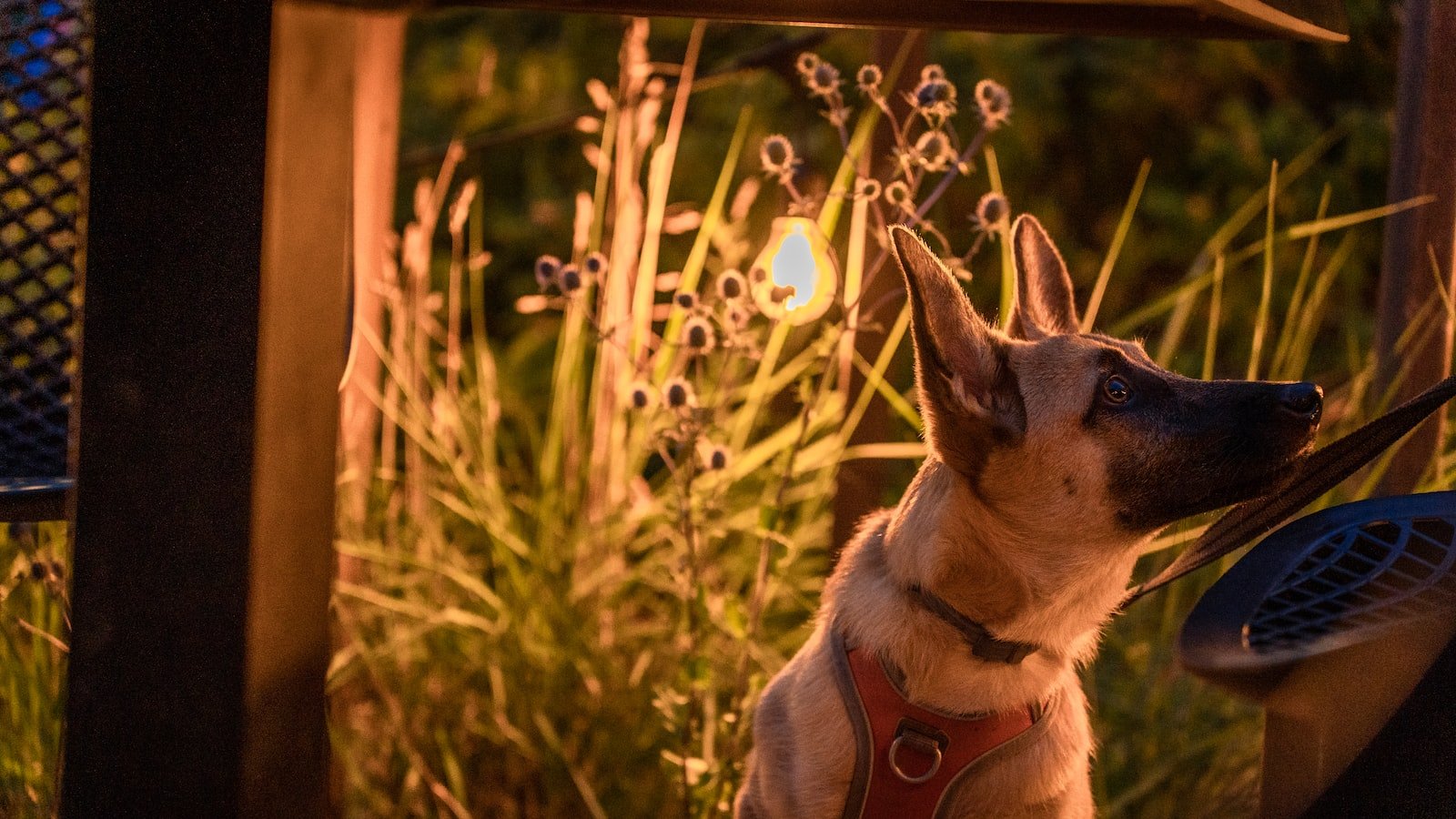Is your furry friend hiding behind your legs when strangers approach? Perhaps your beloved pooch would rather spend his days lounging on the sofa than frolicking with other four-legged companions at the local park. While dogs have a natural range of temperaments, it is possible to shape their sociability through training. By understanding the factors that contribute to a dog’s sociability – from genetics to early life experiences – and implementing effective techniques, you can unlock your canine companion’s potential to become a more outgoing and socially adept member of the pack. In this article, we delve into the question: can you train a dog to be more social? Join us as we explore the intricacies of canine sociability and equip you with the knowledge and tools you need to help your furry friend bloom into a social butterfly.
Table of Contents
- Understanding the Importance of Socialization for Dogs
- The Benefits of Socializing Your Canine Companion
- Effective Techniques for Training Dogs to Be More Social
- Common Challenges and How to Overcome Them
- Expert Tips for Successfully Socializing Your Dog
- Q&A
- Final Thoughts

Understanding the Importance of Socialization for Dogs
Socialization plays a crucial role in the overall well-being of our furry companions. It goes beyond just fun and play – it helps dogs develop essential skills, build confidence, and ensure a balanced mental health.
Benefits of socialization for dogs:
- Improved behavior: Dogs that are regularly exposed to diverse environments, people, and other animals tend to exhibit better behavior. They learn how to interact politely, avoid aggression, and cope with various situations.
- Reduced anxiety: Socialization helps dogs become accustomed to different sounds, smells, and experiences, reducing their anxiety levels. It also teaches them how to adapt to new environments, making them less fearful and more comfortable in unfamiliar settings.
- Enhanced communication skills: Interacting with other dogs and people allows dogs to develop better communication skills. They learn to interpret body language, understand social cues, and express themselves effectively.
It is important to start socializing dogs from a young age, as early experiences shape their behavior and attitudes. Gradual exposure to various environments, objects, and individuals can have long-lasting positive effects on their social development. So let’s prioritize socialization and provide our furry friends with the enriching experiences they need to thrive!

The Benefits of Socializing Your Canine Companion
When it comes to our furry friends, socializing is just as important for them as it is for us. Here are some benefits that come with socializing your canine companion:
- Development of proper behavior: By exposing your dog to different people, animals, and environments, socialization helps them learn how to behave appropriately in various situations. It reduces the likelihood of them developing fear or aggression towards unfamiliar things.
- Improved communication skills: Through socialization, dogs learn to communicate and interact effectively with people and other dogs. They become better at reading body language, understanding social cues, and responding appropriately.
- Reduced anxiety and stress: Dogs that are properly socialized tend to be more confident and less fearful. Being exposed to different situations and stimuli familiarizes them with new experiences, resulting in reduced anxiety and stress levels.
- Enhanced safety: Socializing your canine companion helps teach them how to interact peacefully with others, making them less likely to engage in aggressive behavior. This is not only beneficial for the dogs themselves but also contributes to a safer environment for both humans and animals around them.
Remember, socializing your canine companion should be done gradually and in a controlled manner to ensure both their well-being and that of others. Seek professional guidance if needed and always prioritize positive reinforcement and patience in the process.

Effective Techniques for Training Dogs to Be More Social
Dogs are social animals by nature, but some may struggle with socializing with other dogs or humans. If you want to help your beloved canine companion become more socially adept, here are some effective techniques to consider:
- Gradual exposure: Start by gradually exposing your dog to different social situations. This can be done by introducing them to new dogs or people one at a time, in a controlled environment.
- Positive reinforcement: Reward your dog with treats, praise, and playtime whenever they exhibit friendly and sociable behavior. This will reinforce positive associations with socializing.
- Enroll in obedience classes: Taking your dog to obedience classes can provide a structured setting where they can interact with other dogs and learn valuable social skills under the guidance of a professional trainer.
- Socialize with different breeds and sizes: Encourage your dog to interact with dogs of different sizes and breeds, as this will help them become comfortable around a variety of canine companions.
- Park visits: Frequent visits to dog parks can expose your dog to various dogs and people, facilitating their social development. Supervise interactions closely and intervene if necessary.
Remember, every dog is unique, and progress may take time. Be patient, consistent, and always prioritize your dog’s safety and comfort. With dedication and these effective techniques, you can help your furry friend become a more sociable and well-rounded companion.
Common Challenges and How to Overcome Them
1. Lack of motivation
One of the most common challenges people face is a lack of motivation. Whether it’s at work, in personal projects, or even in daily chores, finding the drive to get started or stay on track can be tough. To overcome this, try:
- Setting clear goals: Define what you want to achieve and break it down into smaller, achievable tasks.
- Creating a routine: Establish a consistent schedule to develop a habit and build momentum.
- Finding inspiration: Surround yourself with positive influences, read motivational books, or listen to podcasts that boost your enthusiasm.
- Rewarding yourself: Celebrate small wins along the way to stay motivated and encourage further progress.
2. Time management
In today’s fast-paced world, managing time effectively is a common challenge for many. Feeling overwhelmed by a never-ending to-do list can hinder productivity. Here are some tips to overcome this challenge:
- Prioritizing tasks: Identify the most important tasks that align with your goals and focus on those first.
- Breaking tasks into chunks: Divide complex tasks into smaller, more manageable parts to make them less daunting.
- Eliminating distractions: Turn off notifications, find a quiet workspace, or use time-blocking techniques to minimize interruptions.
- Learning to delegate: If possible, delegate some tasks to lighten your workload and free up time for more critical responsibilities.
3. Fear of failure
The fear of failure is another challenge that can hold us back from reaching our full potential. It can prevent us from taking risks, pursuing new opportunities, or trying something outside our comfort zone. Overcoming this fear requires:
- Shifting perspective: See failure as a learning experience and an opportunity for growth rather than as a reflection of your worth.
- Setting realistic expectations: Understand that failure is a natural part of the learning process and that success often comes after multiple attempts.
- Building self-confidence: Focus on your strengths, celebrate past achievements, and surround yourself with supportive and encouraging individuals.
- Taking small steps: Start by challenging yourself with manageable tasks and gradually expand your comfort zone.
Remember, challenges are part of life, and everyone faces them. By implementing these strategies, you can overcome common obstacles and optimize your chances for success.
Expert Tips for Successfully Socializing Your Dog
When it comes to socializing your furry friend, there are several key steps you can take to ensure their success in various social situations. Here are some expert tips to help you guide your dog on their way to becoming a confident and well-adjusted social companion:
- Expose them to new environments: Introduce your dog to different environments such as parks, busy streets, and even pet-friendly cafes. This exposure will help them adapt to various sights, sounds, and smells, building their sensory confidence.
- Practice positive reinforcement: Reward your dog with treats and praise when they exhibit good behavior during social interactions. Positive reinforcement will help reinforce their confidence and encourage them to repeat desirable social behaviors.
- Gradual introductions to other dogs: Start with controlled, one-on-one introductions to other well-behaved dogs. Slowly increase the number of dogs and the complexity of the social setting. Supervise each interaction to ensure safety and step in if needed.
- Promote calm and relaxed behavior: Encourage your dog to remain calm and relaxed in social situations. Teach them basic commands like “sit,” ”stay,” and “leave it,” which can help redirect their focus and maintain a peaceful demeanor.
- Seek professional assistance if needed: If you encounter any challenges or concerns during the socialization process, don’t hesitate to consult a professional dog trainer or behaviorist. They can provide personalized guidance and develop a tailored training plan to address specific needs.
Remember, each dog has its own unique personality and socialization timeline. Patience, consistency, and positive reinforcement are key to helping your pup become a social butterfly. By following these expert tips, you’ll be well on your way to nurturing a happy and sociable four-legged companion!
Q&A
Can You Train a Dog to Be More Social? What You Need to Know
Q: Can all dogs be trained to be more social?
A: Yes, to a certain extent. While some dogs might have a natural inclination towards social behavior, all dogs can be trained to be more social through positive reinforcement and gradual exposure to new situations.
Q: Why is it important for dogs to be social?
A: Socialization is crucial for dogs as it helps them develop better communication skills, reduces fear and anxiety, and improves their overall well-being. A well-socialized dog is more likely to adapt well to new environments and interact positively with other animals and people.
Q: What are the signs of an unsocialized dog?
A: An unsocialized dog might display behaviors such as fear, aggression, excessive barking, or hiding when encountering new people or situations. They may also exhibit signs of anxiety, such as excessive panting or pacing.
Q: What are some effective ways to train a dog to be more social?
A: Gradual exposure to new environments, people, and other animals is key. Start with controlled interactions, offering positive reinforcement for calm and friendly behavior. Formal obedience training classes can also provide a structured environment for dogs to learn and socialize.
Q: Can an older dog still be trained to be more social?
A: Yes, although older dogs might require more patience and consistency, they can still be trained to be more social. It is important to understand their unique history and tailor the training approach accordingly.
Q: Is it possible for a severely unsocialized dog to become fully social?
A: While it might be challenging, severe cases of unsocialized dogs can still show significant improvement with proper training and experienced guidance. Every dog is different, and progress may vary, but with time and dedication, positive changes can be achieved.
Q: Should I consult a professional dog trainer for help?
A: Consulting a professional dog trainer, especially when dealing with severe behavior issues or if you are unsure of the best approach, can be highly beneficial. A professional can assess the dog’s behavior, design a tailored training plan, and provide guidance throughout the process.
Q: Can I train my dog to be social on my own?
A: Yes, with dedication, consistency, and research, you can train your dog to be more social on your own. However, it is always recommended to seek guidance from experienced trainers or behaviorists to ensure you are following the correct techniques and avoiding any potential pitfalls.
Final Thoughts
In a world where dogs are not just man’s best friend, but also beloved members of our families, it’s only natural to want our furry companions to be social butterflies. After all, who doesn’t envision their pup happily mingling with other dogs at the park or warmly greeting strangers with a wag of their tail?
The good news is that you can absolutely train your dog to be more social and enhance their social skills. With a blend of patience, consistency, and a deep understanding of your four-legged friend, you can help them navigate the social spheres with confidence and grace.
Remember, doggos are individuals, each with their own unique personality and upbringing. Some may naturally gravitate towards social interactions, while others may find it daunting or overwhelming. Understanding your dog’s temperament is key to tailoring an effective training plan.
Begin by exposing your pup to controlled social situations. Gradually introduce them to new dogs, people, and environments, ensuring each encounter is a positive experience. Start with brief interactions and gradually increase the duration as their comfort level grows.
Positive reinforcement is the cornerstone of successful dog training. Reward your pup with treats, praise, and affection when they exhibit desired social behaviors, such as calmness, appropriate greetings, and friendly interactions. Be patient, as progress may take time, but trust that consistency and positive reinforcement will yield results.
It’s important to remember that not all dogs are social butterflies by nature. Some may have had negative experiences that shape their behavior, while others simply prefer the solace of their own company. Respecting your dog’s boundaries and allowing them to dictate their level of sociability is equally vital. Remember, pushing your pup too far out of their comfort zone may have the opposite effect, hindering their progress rather than fostering it.
Seeking professional help from a certified dog trainer or behaviorist can provide invaluable guidance and support throughout the training process. These experts can assess your dog’s individual needs, tailor a training program, and address any underlying behavioral issues that may be hindering their social skills.
Ultimately, training your dog to be more social is not just about turning them into social butterflies; it’s about providing them with a well-rounded life enriched by positive social experiences. By understanding and respecting their individuality, and with a little creative training, you can help your furry friend navigate the social sphere with confidence, making tails wag and hearts melt everywhere they go.
As an affiliate, my content may feature links to products I personally use and recommend. By taking action, like subscribing or making a purchase, you’ll be supporting my work and fueling my taco cravings at the same time. Win-win, right?
Want to read more? Check out our Affiliate Disclosure page.